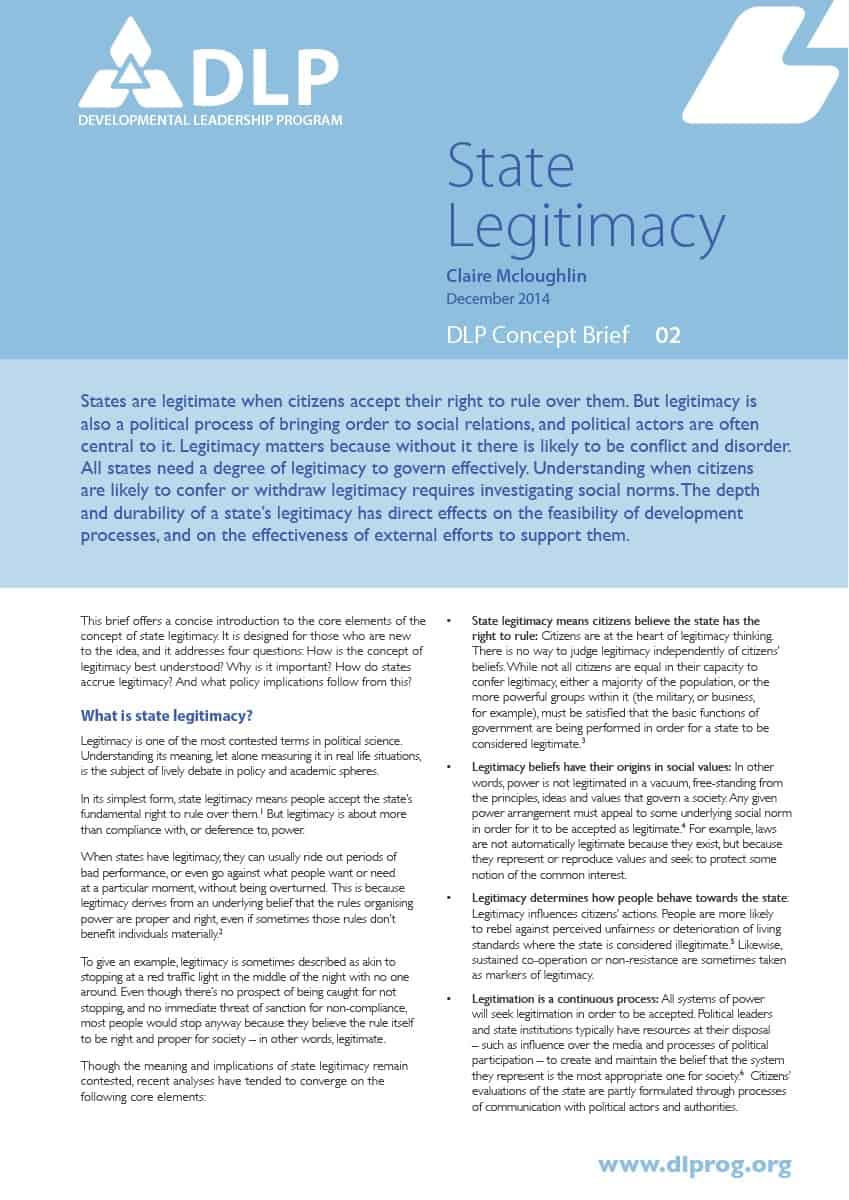This brief offers a concise introduction to the core elements of the concept of state legitimacy. It addresses four questions: How is the concept of legitimacy best understood? Why is it important? How do states accrue legitimacy? And what policy implications follow from this?
States are legitimate when citizens accept their right to rule over them. But legitimacy is also a political process of bringing order to social relations, and political actors are often central to it.
Legitimacy matters because without it there is likely to be conflict and disorder. All states need a degree of legitimacy to govern effectively.
Understanding when citizens are likely to confer or withdraw legitimacy requires investigating social norms. The depth and durability of a state’s legitimacy has direct effects on the feasibility of development processes, and on the effectiveness of external efforts to support them.










